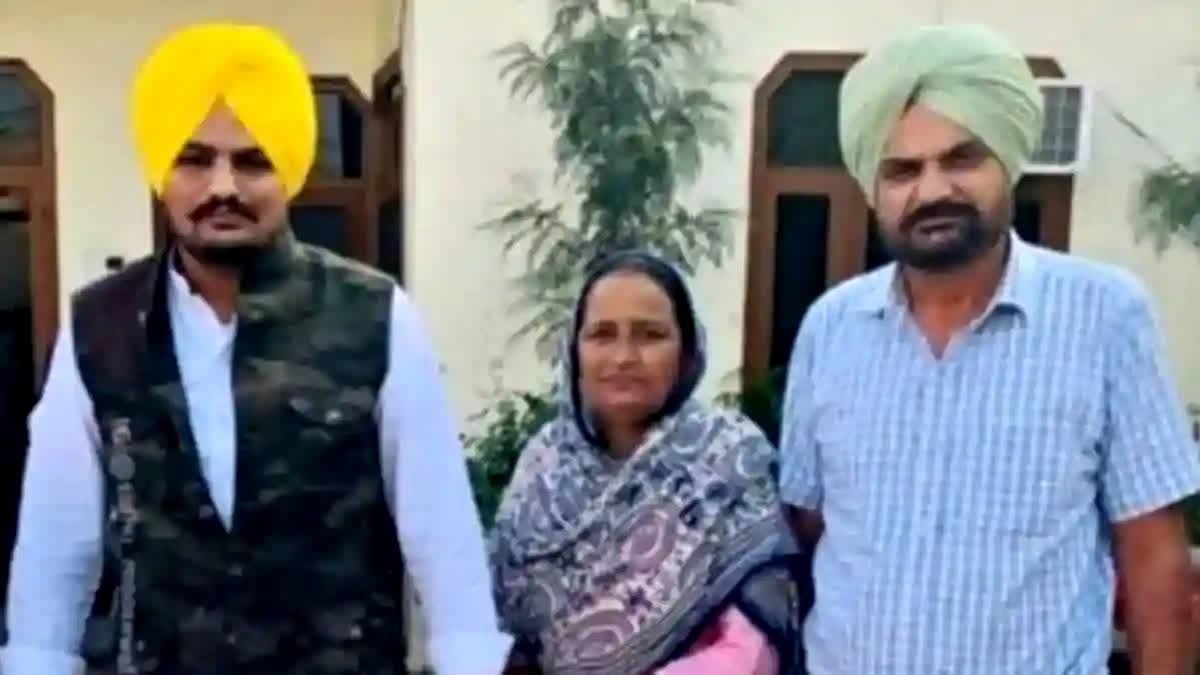New Delhi: Days after the deceased Punjabi singer Sidhu Moosewala’s 58-year-old mother Charan Singh Kaur delivered a baby through in vitro fertilisation (IVF), the Union Ministry of Health and Family Welfare (MoHFW) has asked for a detailed report from the Punjab government over the matter.
In a letter dashed to the Principal Secretary in the Department of Health and Family Welfare of Punjab government, the Union Health Ministry has highlighted that it has come across reports that Punjabi singer Sidhu Moosewala’s mother conceived a baby through IVF at the age of 58 years.
The ministry in its letter said that under section 21 of the Assisted Reproductive Technology (ART) (Regulation) Act, 2021, the age limit prescribed for a woman going under ART Services is between 21-50 years. “You are requested to look into the matter and submit a report to this department of the actions taken in the case as per the Assisted Reproductive Technology (ART) (Regulations) Act, 2021,” the letter signed by SK Ranjan on behalf of the health ministry stated.
On Sunday, Moosewala’s parents welcomed a baby boy, almost two years after the singer was shot dead in Punjab’s Mansa. Balkaur Singh, Moosewala’s father, announced the birth of the newborn on his Facebook page saying he and his wife were blessed with Moosewala’s younger brother.
ART (Regulations) Act
The Assisted Reproductive Technology (Regulation) Act, 2021 was passed on December 18, 2021 and came into force on January 25, 2022 with the purpose of regulating and supervising the Assisted Reproductive Technology (ART) clinics and banks and to ensure safe and ethical practices of ART in India. On June 7, 2022 Assisted Reproductive Technology (Regulation) Rules, 2022 were passed. As per Section 2 (c) of the Act, ART clinic means any premises equipped with requisite facilities and medical practitioners registered with the National Medical Commission (NMC) for carrying out the procedures related to the assisted reproductive technology.
What's In-vitro fertilization (IVF)
In-vitro fertilization (IVF) is a complex fertility treatment comprising several procedures. The process begins with ovarian stimulation, where hormonal therapy is used to stimulate the ovaries to produce multiple eggs instead of the usual single egg. The woman’s response is closely monitored through regular blood tests and ultrasound images to track follicle development and hormone levels. Once the follicles have reached the ideal size, a trigger shot is given to induce the final maturation of the eggs. The eggs are then retrieved using a minimally invasive procedure called transvaginal ultrasound-guided follicle aspiration. After retrieval, the eggs and sperm are combined in a lab dish for fertilization. Then, the fertilized eggs are cultured in a laboratory for a few days to develop. After the culture period, one or more embryos are selected for transfer to the uterus. Subsequently, a pregnancy test is conducted 10 to 14 days after the embryo transfer to determine the success of the IVF process.
IVF Success in India
IVF success rates in India fall between 30-35 per cent, as estimated by the Obstetrics and Gynaecology Department of All India Institute of Medical Sciences (AIIMS), New Delhi. During a good run of the treatment, the success rates tend to increase up to 40 percent.
However, private clinics in India claim to have much higher success rates. Many of the private IVF clinics specified 70 to 80 percent success rates for women under 35 and 40 years of age and 50 percent chance for over 40 years of age.
Necessity & Costs
People prefer IVF when someone is unable to get pregnant naturally. A person or couple is diagnosed with unexplained infertility, among others. The cost of IVF treatment ranges from around Rs 1,00,000 to Rs 3,50,000, depending on the number of cycles, additional procedures, and factors such as location and the clinic’s reputation.
Expert Opinion
IVF in today’s life is becoming more common due to increasing stress and strain. Assistive technologies with proper information to clients does provide a lot of assistance to couples, says Dr Suneela Garg, renowned health expert and Professor of Excellence, Community Medicine.
“Upto 30 years is ideal due to physical and coping ability but these days couples have choices,” said Dr Garg who was the sub dean of Delhi’s Maulana Azad Medical College.
Read More
Moosewala's Father Alleges Punjab Govt 'Harassing' Him Over Newborn Son



